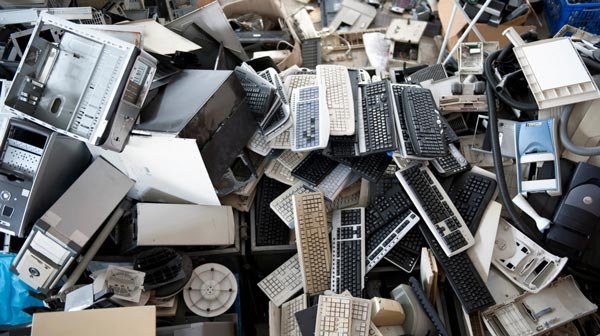Malad’s Green Solution: E-Waste Recycling Made Easy
In today’s rapidly advancing technological landscape, the proliferation of electronic devices has led to a concerning rise in electronic waste, commonly known as e-waste. This article delves into the specific context of e-waste recycling in Malad, shedding light on the current scenario, existing challenges, and the strides being made towards sustainable solutions.
Introduction
Defining E-Waste
Electronic waste comprises discarded electronic devices such as smartphones, laptops, and appliances, which pose environmental hazards if not managed properly. As technology evolves, so does the volume of e-waste, necessitating efficient recycling methods.
The Growing Concerns
The exponential growth of electronic consumption brings forth environmental concerns, prompting the need for responsible e-waste management. This article explores how Malad is tackling this challenge.
Importance of Recycling
Effective e-waste recycling is not just about waste disposal; it’s a crucial step in conserving resources, reducing environmental impact, and fostering a circular economy.
The Current Scenario in Malad
Malad E-Waste Generation
Malad, a bustling suburb, is not immune to the challenges of electronic waste. The article examines the current state of e-waste generation in Malad and its repercussions.
Environmental Impact
Unchecked e-waste poses severe threats to the environment, including soil and water contamination. Understanding these consequences emphasizes the need for immediate action.
The Urgency for Management
Unmanaged e-waste can lead to long-term environmental damage. This section emphasizes the urgency of implementing effective e-waste management practices in Malad.
E-Waste Recycling Facilities in Malad
Existing Recycling Centers
Malad boasts several e-waste recycling facilities. We explore these centers, shedding light on their contributions to sustainable waste management.
Government Initiatives
Government-led initiatives play a pivotal role in shaping e-waste management. The article discusses the measures taken by local authorities to address this issue.
Incentives for Businesses
Businesses adopting eco-friendly practices are often rewarded. This section elaborates on the incentives provided to encourage businesses to contribute to sustainable electronic waste management.
Benefits of Electronic Waste Recycling
Environmental Conservation
Proper recycling reduces the environmental impact of electronic waste, preserving natural resources and minimizing pollution.
Resource Recovery
Recycling enables the recovery of valuable resources from electronic devices, contributing to resource conservation.
Job Creation
E-waste recycling initiatives create employment opportunities, fostering economic growth in Malad.
Challenges in Electronic Waste Recycling
Lack of Awareness
Many individuals remain unaware of the importance of responsible e-waste disposal. This section addresses the need for increased awareness.
Technological Advancements
As technology evolves, so do electronic devices, presenting new challenges in recycling methods. The article explores how Malad is adapting to these changes.
Stricter Regulations
Effective electronic waste management requires robust regulations. This section discusses the necessity for stricter measures to curb the improper disposal of electronic waste.
Best Practices for Electronic Waste Management
Public Education
Educating the public on responsible e-waste disposal practices is key. This section explores awareness campaigns and educational initiatives.
Certified Recycling Centers
Encouraging the use of certified recycling centers ensures responsible and environmentally friendly e-waste disposal.
Government-Private Collaboration
Collaboration between the government and private sectors enhances the effectiveness of e-waste management initiatives.
Case Studies
Success Stories
Highlighting successful electronic waste recycling stories in Malad showcases the positive impact of community-driven initiatives.
Community Involvement
Communities actively participating in recycling initiatives contribute significantly to the success of e-waste management programs.
Environmental Impact
Illustrating the positive environmental impact of electronic waste recycling emphasizes the tangible benefits of these efforts.
Future Trends in Electronic Waste Recycling
Technological Innovations
Technological advancements in electronic waste recycling processes signal a promising future for sustainable waste management.
Product Design Trends
Emerging trends in electronic product design aim to reduce environmental impact, shaping the future of electronic waste.
Global Sustainability Efforts
Examining global efforts towards sustainable electronic waste management provides context for Malad’s role in the broader picture.
How Individuals Can Contribute
Responsible Disposal
Individuals can contribute by adopting responsible electronic waste disposal practices at home, minimizing environmental impact.
Support Local Initiatives
Supporting local electronic waste recycling initiatives strengthens community-driven efforts towards sustainable waste management.
Spread Awareness
Utilizing social media to spread awareness about responsible electronic waste disposal empowers individuals to make informed choices.
Conclusion
In conclusion, effective electronic waste recycling in Malad is not just a necessity but a collective responsibility. By understanding the challenges, embracing sustainable practices, and fostering community involvement, Malad can pave the way for a greener and cleaner future.
Frequently Asked Questions
- How can I dispose of my electronic waste responsibly in Malad?
- Explore certified electronic waste recycling centers in Malad for responsible disposal.
- Are there any incentives for businesses to participate in electronic waste recycling in Malad?
- Yes, the local government provides incentives to businesses adopting eco-friendly electronic waste management practices.
- What are the potential environmental impacts of unmanaged electronic waste in Malad?
- Unmanaged electronic waste can lead to soil and water contamination, posing serious environmental threats.
- How can I

